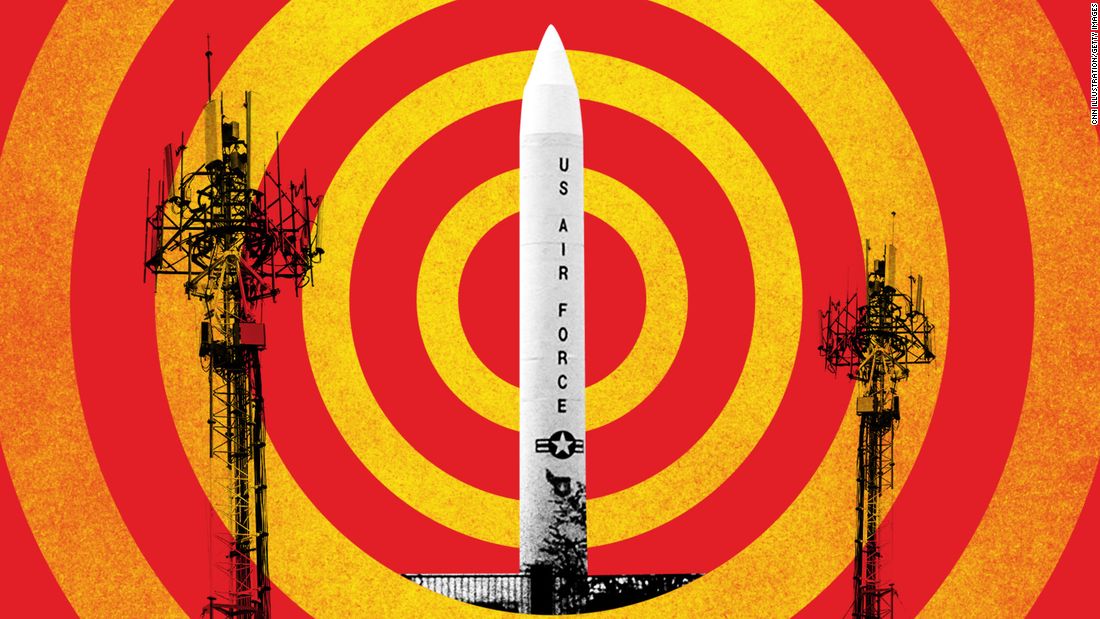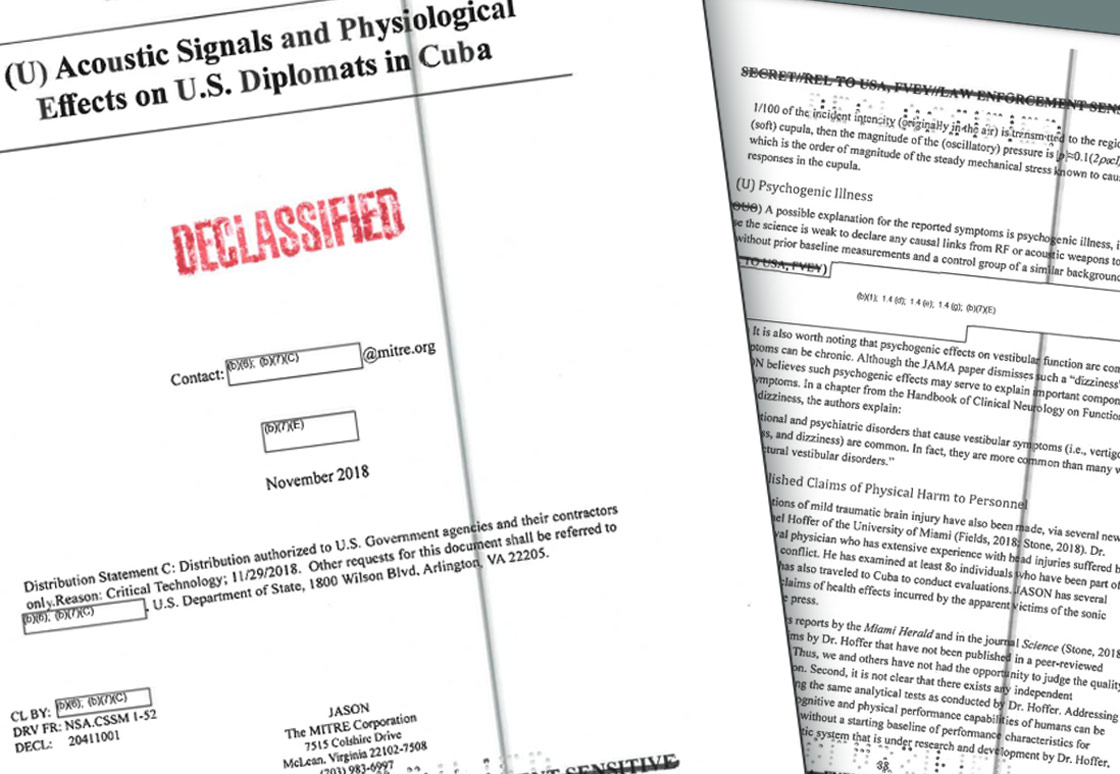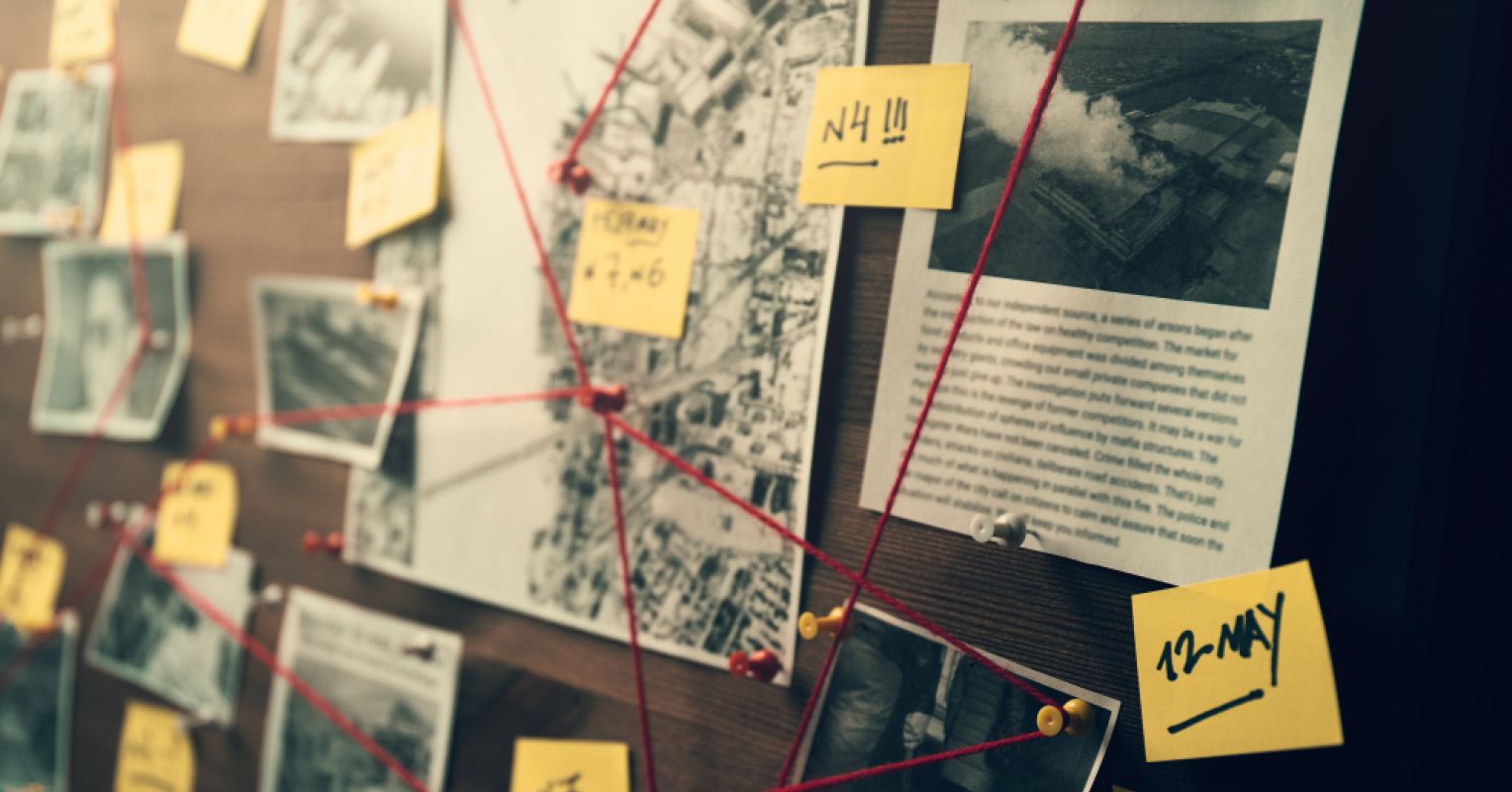- Apr 14, 2001
- 55,853
- 13,965
- 146
We allowed them to sell the equipment designed to do this to rural telecoms near ICBM facilities and military bases (we only discovered it because we realized they were selling the equipment at a loss to beat other bids), and have yet to remove any of it.

 www.cnn.com
www.cnn.com
Also a stunning attempt:
In 2017, the Chinese government was offering to spend $100 million to build an ornate Chinese garden at the National Arboretum in Washington DC. Complete with temples, pavilions and a 70-foot white pagoda, the project thrilled local officials, who hoped it would attract thousands of tourists every year.
But when US counterintelligence officials began digging into the details, they found numerous red flags. The pagoda, they noted, would have been strategically placed on one of the highest points in Washington DC, just two miles from the US Capitol, a perfect spot for signals intelligence collection, multiple sources familiar with the episode told CNN.
Also alarming was that Chinese officials wanted to build the pagoda with materials shipped to the US in diplomatic pouches, which US Customs officials are barred from examining, the sources said.
Federal officials quietly killed the project before construction was underway.
The canceled garden is part of a frenzy of counterintelligence activity by the FBI and other federal agencies focused on what career US security officials say has been a dramatic escalation of Chinese espionage on US soil over the past decade.
More detail:
As early as the Obama administration, FBI agents were monitoring a disturbing pattern along stretches of Interstate 25 in Colorado and Montana, and on arteries into Nebraska. The heavily trafficked corridor connects some of the most secretive military installations in the US, including an archipelago of nuclear missile silos.
For years, small, rural telecom providers had been installing cheaper, Chinese-made routers and other technology atop cell towers up and down I-25 and elsewhere in the region. Across much of these sparsely populated swaths of the west, these smaller carriers are the only option for cell coverage. And many of them turned to Huawei for cheaper, reliable equipment.
Beginning in late 2011, Viaero, the largest regional provider in the area, inked a contract with Huawei to provide the equipment for its upgrade to 3G. A decade later, it has Huawei tech installed across its entire fleet of towers, roughly 1,000 spread over five western states.
As Huawei equipment began to proliferate near US military bases, federal investigators started taking notice, sources familiar with the matter told CNN. Of particular concern was that Huawei was routinely selling cheap equipment to rural providers in cases that appeared to be unprofitable for Huawei — but which placed its equipment near military assets.
Federal investigators initially began "examining [Huawei] less from a technical lens and more from a business/financial view," explained John Lenkart, a former senior FBI agent focused on counterintelligence issues related to China. Officials studied where Huawei sales efforts were most concentrated and looked for deals that "made no sense from a return-on-investment perspective," Lenkart said.
"A lot of [counterintelligence] concerns were uncovered based on" those searches, Lenkart said.
By examining the Huawei equipment themselves, FBI investigators determined it could recognize and disrupt DOD-spectrum communications — even though it had been certified by the FCC, according to a source familiar with the investigation.
"It's not technically hard to make a device that complies with the FCC that listens to nonpublic bands but then is quietly waiting for some activation trigger to listen to other bands," said Eduardo Rojas, who leads the radio spectrum lab at Embry-Riddle Aeronautical University in Florida. "Technically, it's feasible."
To prove a device had clandestine capabilities, Rojas said, would require technical experts to strip down a device "to the semi-conductor level" and "reverse engineer the design." But, he said, it can be done.
And there was another big concern along I-25, sources familiar with the investigation said.
Weather camera worries
Around 2014, Viaero started mounting high-definition surveillance cameras on its towers to live-stream weather and traffic, a public service it shared with local news organizations. With dozens of cameras posted up and down I-25, the cameras provided a 24-7 bird's eye view of traffic and incoming weather, even providing advance warning of tornadoes.
But they were also inadvertently capturing the movement of US military equipment and personnel, giving Beijing — or anyone for that matter — the ability to track the pattern of activity between a series of closely guarded military facilities.
The intelligence community determined the publicly posted live-streams were being viewed and likely captured from China, according to three sources familiar with the matter. Two sources briefed on the investigation at the time said officials believed that it was possible for Beijing's intelligence service to "task" the cameras — hack into the network and control where they pointed. At least some of the cameras in question were running on Huawei networks.
Viaero CEO Frank DiRico said it never occurred to him the cameras could be a national security risk.
"There's a lot of missile silos in areas we cover. There is some military presence," DiRico said in an interview from his Colorado office. But, he said, "I was never told to remove the equipment or to make any changes."
In fact, DiRico first learned of government concerns about Huawei equipment from newspaper articles — not the FBI — and says he has never been briefed on the matter.
DiRico doesn't question the government's insistence that he needs to remove Huawei equipment, but he is skeptical that China's intelligence services can exploit either the Huawei hardware itself or the camera equipment.
"We monitor our network pretty good," DiRico said, adding that Viaero took over the support and maintenance for its own networks from Huawei shortly after installation. "We feel we've got a pretty good idea if there's anything going on that's inappropriate."

CNN Exclusive: FBI investigation determined Chinese-made Huawei equipment could disrupt US nuclear arsenal communications
On paper, it looked like a fantastic deal. In 2017, the Chinese government was offering to spend $100 million to build an ornate Chinese garden at the National Arboretum in Washington DC. Complete with temples, pavilions and a 70-foot white pagoda, the project thrilled local officials, who hoped...
Also a stunning attempt:
In 2017, the Chinese government was offering to spend $100 million to build an ornate Chinese garden at the National Arboretum in Washington DC. Complete with temples, pavilions and a 70-foot white pagoda, the project thrilled local officials, who hoped it would attract thousands of tourists every year.
But when US counterintelligence officials began digging into the details, they found numerous red flags. The pagoda, they noted, would have been strategically placed on one of the highest points in Washington DC, just two miles from the US Capitol, a perfect spot for signals intelligence collection, multiple sources familiar with the episode told CNN.
Also alarming was that Chinese officials wanted to build the pagoda with materials shipped to the US in diplomatic pouches, which US Customs officials are barred from examining, the sources said.
Federal officials quietly killed the project before construction was underway.
The canceled garden is part of a frenzy of counterintelligence activity by the FBI and other federal agencies focused on what career US security officials say has been a dramatic escalation of Chinese espionage on US soil over the past decade.
More detail:
As early as the Obama administration, FBI agents were monitoring a disturbing pattern along stretches of Interstate 25 in Colorado and Montana, and on arteries into Nebraska. The heavily trafficked corridor connects some of the most secretive military installations in the US, including an archipelago of nuclear missile silos.
For years, small, rural telecom providers had been installing cheaper, Chinese-made routers and other technology atop cell towers up and down I-25 and elsewhere in the region. Across much of these sparsely populated swaths of the west, these smaller carriers are the only option for cell coverage. And many of them turned to Huawei for cheaper, reliable equipment.
Beginning in late 2011, Viaero, the largest regional provider in the area, inked a contract with Huawei to provide the equipment for its upgrade to 3G. A decade later, it has Huawei tech installed across its entire fleet of towers, roughly 1,000 spread over five western states.
As Huawei equipment began to proliferate near US military bases, federal investigators started taking notice, sources familiar with the matter told CNN. Of particular concern was that Huawei was routinely selling cheap equipment to rural providers in cases that appeared to be unprofitable for Huawei — but which placed its equipment near military assets.
Federal investigators initially began "examining [Huawei] less from a technical lens and more from a business/financial view," explained John Lenkart, a former senior FBI agent focused on counterintelligence issues related to China. Officials studied where Huawei sales efforts were most concentrated and looked for deals that "made no sense from a return-on-investment perspective," Lenkart said.
"A lot of [counterintelligence] concerns were uncovered based on" those searches, Lenkart said.
By examining the Huawei equipment themselves, FBI investigators determined it could recognize and disrupt DOD-spectrum communications — even though it had been certified by the FCC, according to a source familiar with the investigation.
"It's not technically hard to make a device that complies with the FCC that listens to nonpublic bands but then is quietly waiting for some activation trigger to listen to other bands," said Eduardo Rojas, who leads the radio spectrum lab at Embry-Riddle Aeronautical University in Florida. "Technically, it's feasible."
To prove a device had clandestine capabilities, Rojas said, would require technical experts to strip down a device "to the semi-conductor level" and "reverse engineer the design." But, he said, it can be done.
And there was another big concern along I-25, sources familiar with the investigation said.
Weather camera worries
Around 2014, Viaero started mounting high-definition surveillance cameras on its towers to live-stream weather and traffic, a public service it shared with local news organizations. With dozens of cameras posted up and down I-25, the cameras provided a 24-7 bird's eye view of traffic and incoming weather, even providing advance warning of tornadoes.
But they were also inadvertently capturing the movement of US military equipment and personnel, giving Beijing — or anyone for that matter — the ability to track the pattern of activity between a series of closely guarded military facilities.
The intelligence community determined the publicly posted live-streams were being viewed and likely captured from China, according to three sources familiar with the matter. Two sources briefed on the investigation at the time said officials believed that it was possible for Beijing's intelligence service to "task" the cameras — hack into the network and control where they pointed. At least some of the cameras in question were running on Huawei networks.
Viaero CEO Frank DiRico said it never occurred to him the cameras could be a national security risk.
"There's a lot of missile silos in areas we cover. There is some military presence," DiRico said in an interview from his Colorado office. But, he said, "I was never told to remove the equipment or to make any changes."
In fact, DiRico first learned of government concerns about Huawei equipment from newspaper articles — not the FBI — and says he has never been briefed on the matter.
DiRico doesn't question the government's insistence that he needs to remove Huawei equipment, but he is skeptical that China's intelligence services can exploit either the Huawei hardware itself or the camera equipment.
"We monitor our network pretty good," DiRico said, adding that Viaero took over the support and maintenance for its own networks from Huawei shortly after installation. "We feel we've got a pretty good idea if there's anything going on that's inappropriate."





